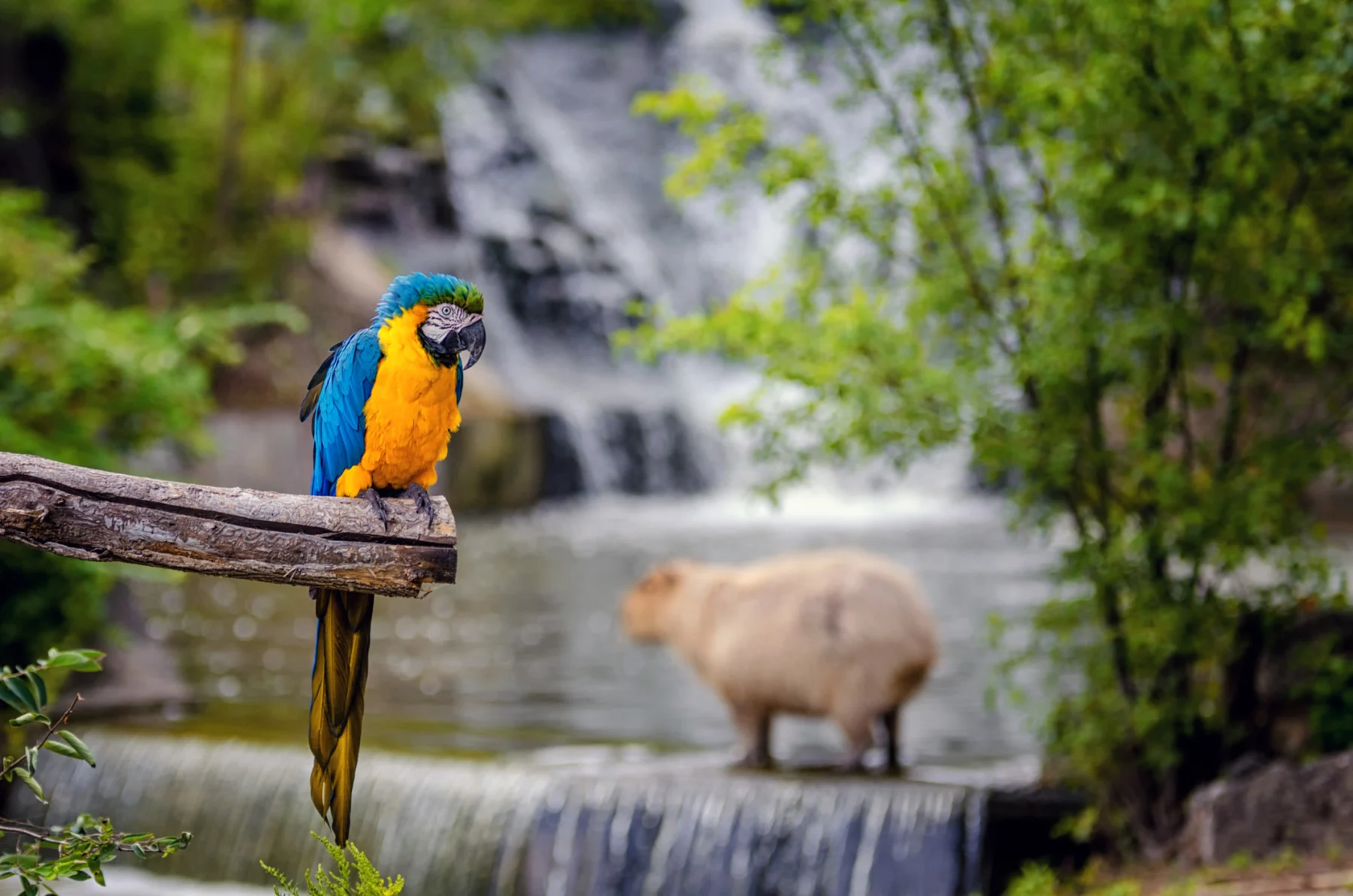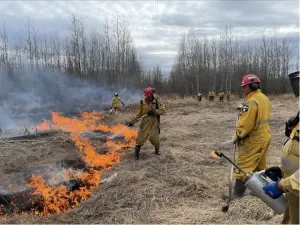
One million species are at risk of extinction, according to a new report
The world has seen five previous mass extinctions of species caused by cataclysmic natural events like super-volcanoes and giant meteors. We are in the midst of a sixth mass extinction with one million species at risk, according to a new report.
This time around it is the result of human-made causes like climate change.
The report, from the Intergovernmental Platform on Biodiversity and Ecosystem Services (IPBES), warns that the extinction rates of species worldwide are “accelerating” and that the decline is “unprecedented.”
“Nature is at a tipping point,” Eva Zabey, executive director of Business for Nature, told The Weather Network (TWN). “We've already altered 75 per cent of all terrestrial land, we've lost 60 per cent of wildlife species, one million species are at risk of extinction.”
“We've got to a point where nature loss is reaching tipping points on a planetary scale,” she added.
The report was prepared with contributions from some 450 experts and specialists and examined ecosystem changes over the past fifty years, drawing on thousands of scientific sources as well as Indigenous knowledge systems.

A blue and gold macaw sitting on a branch in front of a waterfall with a bathing Capybara in Brazil. (Hillary Kladke/ Moment/ Getty Images)
The findings demonstrate that of the one million threatened species, many could become extinct in mere decades, with amphibians, marine mammals, and corals at particularly high risk.
“Ecosystems, species, wild populations, local varieties and breeds of domesticated plants and animals are shrinking, deteriorating or vanishing,” stated Professor Josef Settele, a co-chair of the report.
Settele called the loss “a direct result of human activity,” and the report highlights causes like changes to land use, animal exploitation, pollution, and invasive species. Climate change ranks as the third most serious cause.
Importantly, Settele also noted that the loss “constitutes a direct threat to human well-being in all regions of the world.”
“The health of ecosystems on which we and all other species depend is deteriorating more rapidly than ever,” stated IPBES Chair, Sir Robert Watson. “We are eroding the very foundations of our economies, livelihoods, food security, health, and quality of life worldwide.”
“We've been confronted with a series of crises that are stress testing the foundations on which our societies have been built,” Zabey agreed.
The report made clear that the loss of nature on this scale poses an existential and economic threat to human society.
“[The report] is a compelling case for companies to fully understand how they impact but also depend on nature through their value chain,” said Zabey.
In response to the findings, 14 of the world’s largest environmental groups gathered at the Convention on Biological Diversity (CBD) in Geneva last week to lay the groundwork for what they hope will become the new Global Biodiversity Framework, in advance of the COP15 UN biodiversity summit in Kunming, China, next month.
The groups, which include The Nature Conservancy, WWF International, and Conservation International, are backing a policy paper with the goal of attaining a “nature positive” world by 2030, with the primary strategy of halting and reversing biodiversity loss.
“After so many missed opportunities for face-to-face conversations during the pandemic, we're calling on CBD negotiators to make up for lost time in Geneva and fast-track Nature Positive thinking,” said Jennifer Morris, CEO of The Nature Conservancy.
“Fresh scientific evidence gives us the guidance needed to bolster the Global Biodiversity Framework due for approval in Kunming. We must stem the loss of our ecological life-support systems now,” Morris added.
To achieve these aims, the environmental groups propose several key actions that must be widely adopted by governments and business over the coming decade, like putting an end to ecosystem-damaging activities, increasing funding for protected lands, and setting aside as much as a third of global land and water for conservation.
“The urgency and scale of action is critical right now. That's why we need this political framework to make sure that we level the playing field so that all actors are on the same page,” stated Zabey.
“There is no business on a dead planet,” she added.
Thumbnail credit: Siegfried Layda/ The Image Bank/ Getty Images










